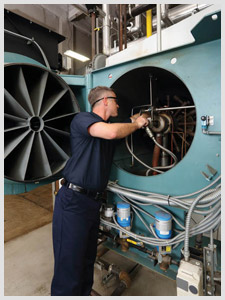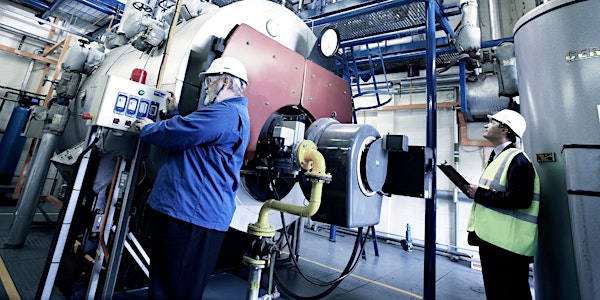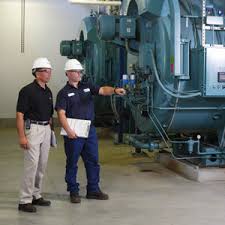Discover the Important Abilities and Expertise Gained From Boiler Training
When you join boiler training, you obtain essential skills that directly influence your performance in the area. You'll check out numerous boiler types, discover exactly how to operate them effectively, and recognize the importance of safety procedures. But there's more to it than just operation; you'll likewise uncover exactly how to repair common issues and guarantee governing compliance. Each element plays an essential function in your specialist development, causing considerable contributions in the market. What other insights await you?
Comprehending Central Heating Boiler Kind and Parts
You'll experience numerous boiler kinds, including fire-tube, water-tube, and electrical boilers. Fire-tube central heating boilers, for circumstances, are understood for their simpleness and integrity, while water-tube boilers are liked for high-pressure applications due to their robust style.
Acquainting yourself with key components like burners, warmth exchangers, and controls is essential. The heater stirs up the fuel, while the heat exchanger transfers warmth to the water. Controls manage temperature and pressure, assuring risk-free operation.
Recognizing how these aspects interact helps you repair issues and enhance efficiency. As you dive deeper right into boiler training, you'll obtain the confidence to determine the ideal boiler for particular requirements and validate it runs efficiently, eventually resulting in much safer and extra effective heating solutions.
Grasping Central Heating Boiler Procedure and Control
Understanding the types and components of central heating boilers establishes the phase for grasping their operation and control. Once you realize the basics, you can submerse on your own in the ins and outs of taking care of central heating boiler systems successfully.
You'll also get hands-on experience with numerous control devices, such as analog and electronic systems. Understanding these will certainly enable you to react promptly to any fluctuations or issues that occur during procedure.
In addition, familiarity with the control panel and its indications will certainly increase your confidence in repairing small issues before they rise. Establishing these skills not only boosts your functional knowledge but additionally prepares you for reliable decision-making in real-world situations. Ultimately, grasping boiler operation and control is essential to guaranteeing a smooth, effective process.
Ensuring Safety and Conformity Standards
While understanding boiler procedure is essential, making certain security and conformity with industry criteria is similarly important. You'll require to acquaint yourself with local regulations and finest techniques to reduce threats. Recognizing the safety and security features constructed into boilers, such as pressure relief shutoffs and emergency shut-off systems, is essential.
During your training, you'll discover how to carry out normal evaluations and maintenance to keep your equipment in top shape. You'll additionally acquire knowledge regarding correct documentation, which assists demonstrate compliance during assessments.
Moreover, recognizing possible dangers and recognizing how to react to them can conserve lives and stop costly crashes.
Repairing Common Central Heating Boiler Issues
When boiler issues occur, acknowledging the signs and symptoms is your initial step towards an effective fix. You'll learn to determine common troubles and use the right repair work strategies to get points back on course. Boiler Training. Allow's check out just how to repair these problems effectively
Determining Boiler Signs

Effective Repair Techniques

Carrying Out Regular Maintenance and Examinations
Executing routine maintenance and assessments is important for maintaining your boiler running successfully and securely. You'll intend to recognize the importance of routine checks, vital procedures, and required security protocols. By remaining aggressive, you can prevent major problems and ensure a risk-free workplace.
Value of Regular Evaluations
While regular examinations might seem like an aggravation, they're important for maintaining the effectiveness and safety and security of your central heating boiler system. Routine checks help ensure that all components are operating correctly, which not just extends the life of your boiler however also enhances its performance. Remember, a positive approach to assessments can prevent unanticipated break downs and keep your boiler running efficiently for years to come.
Key Upkeep Procedures
Regular examinations set the foundation for reliable maintenance, however it doesn't stop there. You require to perform routine upkeep tasks to maintain your boiler running efficiently. Beginning by checking the water levels and confirming they're within the suggested array. Inspect the pressure scale and look for any type of irregularities. Clean filters regularly to avoid clogs that can impede efficiency. Do not forget to oil moving parts, as this minimizes damage. Additionally, check out the combustion chamber for residue accumulation, which can influence efficiency. By staying positive with these treatments, you not just extend the lifespan of your boiler but additionally guarantee peak performance. Remember, consistent maintenance causes less breakdowns and a safer working atmosphere.
Safety Protocols and Practices
Guaranteeing safety and security during routine upkeep and evaluations is vital for both you and the central heating boiler's total performance. Acquaint yourself with the central heating boiler's guidebook, as it details specific safety and security steps customized to your system.
Routinely look for leakages, and evaluate valves and fittings for wear. Maintain clear accessibility to emergency situation shut-off switches and ensure appropriate air flow in the area. Document your searchings for and any type of maintenance carried out to track the boiler's condition gradually. By adhering to these methods, you'll aid stop accidents and assurance efficient operation of the central heating boiler.
Implementing Power Effectiveness Practices
Applying power efficiency practices is important for enhancing boiler performance and decreasing operational expenses. Begin by on a regular basis inspecting and maintaining your boiler to guarantee it operates at peak efficiency. Look for any leaks, rust, or use that might impede efficiency.
Following, take into consideration updating to sophisticated control systems that immediately adjust fuel and air supply based upon need. This not just saves energy but likewise boosts responsiveness to tons variations.
You should also educate your team to monitor power use and determine areas for renovation. Motivate them to embrace methods like insulating pipelines and utilizing economizers to recover waste warm.
Lastly, evaluate your gas choices. Switching to more efficient or eco-friendly gas can substantially reduce emissions and expenses. By embracing these power effectiveness practices, you'll not just enhance your central his explanation heating boiler's long life yet also add to a much more lasting procedure.
Browsing Sector Regulations and Certifications
With power efficiency methods in area, your following focus needs to be on guiding with sector laws and qualifications that regulate central heating boiler operations. Understanding these demands is important for compliance and operational success. Boiler Training. Beginning by familiarizing on your own with local, state, and government guidelines, as they can differ significantly
You'll require to stay updated on criteria set by companies such as the American Society of Mechanical Engineers (ASME) and the National Board of Central Heating Boiler and Pressure Vessel Assessors. Certifications like the National Institute for Accreditation in Design Technologies (NICET) can raise your expert standing.

Often Asked Inquiries
What Career Opportunities Are Readily Available After Completing Central Heating Boiler Training?
After finishing central heating boiler training, you can go after professions as a boiler professional, maintenance engineer, or plant operator. These roles offer possibilities for improvement in different industries, ensuring you stay engaged and challenged in your profession.
How Much Time Does Boiler Training Commonly Take to Total?
Boiler training usually takes anywhere from a few weeks to a number of months, depending on the program. You'll get hands-on experience and academic knowledge, preparing you for different task chances in the market.
Are There Any Type Of Prerequisites for Registering in Boiler Training Programs?
Yes, there are requirements for enrolling in central heating boiler training programs. You typically need a secondary school diploma or equal, together with fundamental math and analysis skills. Some programs may call for prior experience or certifications also.
Can I Seek Boiler Training Online or Is It Only In-Person?
You can go after central heating boiler training online, but lots of programs also provide in-person alternatives. On the internet training gives flexibility, while in-person courses could give you hands-on experience. Select the format that best fits your knowing design and schedule.
What Accreditations Can I Gain Via Boiler Training Courses?
Via boiler training courses, you can make accreditations like the National Board of Central Heating Boiler and Stress Vessel Inspectors qualification, state-specific licenses, and OSHA safety accreditations. These credentials improve your credentials and job chances in the sector.
Comments on “How Boiler Training Prevents Explosions and Costly Shutdowns”